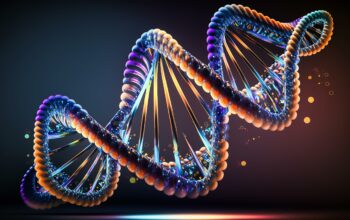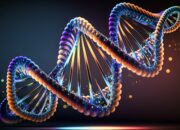In the ever-evolving landscapes of scientific disciplines, the question posed by many aspiring scientists — “Can I be a chemist with a biochemistry degree?” — often emerges as a point of contention and curiosity. At first glance, the domains of chemistry and biochemistry might seem to inhabit distinct realms, yet a closer examination reveals a multitude of intersections. Both domains not only share foundational principles, but the expertise garnered through a biochemistry degree can also serve as a robust platform for embarking on a career in chemistry.
To navigate this intricate terrain, it is imperative to elucidate the core distinctions and overlaps between the two fields. Chemistry is fundamentally concerned with the properties, composition, and behavior of matter. It encompasses a broad spectrum, ranging from inorganic compounds to organic molecules, and delves into the intricacies of chemical reactions. Biochemistry, on the other hand, is concentrated at the intersection of chemistry and biology, focusing on the chemical processes and substances that occur within living organisms. This unique focus does not diminish the relevance of a biochemistry background in the field of chemistry; instead, it can enhance an individual’s comprehensive understanding of molecular interactions and transformations.
The versatility inherent in a biochemistry degree cannot be overstated. Graduates possess substantial knowledge of molecular biology, enzymology, and metabolic pathways, all of which are critical to the understanding of chemical processes. This interdisciplinary expertise equips graduates with analytical skills that are highly prized within the realms of chemistry. For instance, keen insights into the mechanisms of enzymatic reactions can lend invaluable perspective to chemical synthesis, enabling a chemist to conceptualize innovative methodologies that leverage biological principles.
Moreover, the practical experience gained through laboratory training in biochemistry is invaluable. Conducting experiments that range from electrophoresis to chromatography endows students with hands-on skills applicable in any chemistry laboratory. Such experience augments a biochemist’s proficiency in handling hazardous chemicals, performing titrations, and employing advanced instrumentation — all central to the field of chemistry. As laboratories increasingly embrace a multidisciplinary approach, the ability to traverse the dichotomy between chemistry and biochemistry becomes an asset rather than a hurdle.
One must also consider the evolving job market that increasingly favors interdisciplinary knowledge. Industries such as pharmaceuticals and biotechnology are often at the forefront of this shift, requiring professionals who can blend knowledge from diverse scientific domains. As drug development often necessitates an understanding of both chemical properties and biological effects, a chemist with a strong biochemistry background can navigate this complex landscape more adeptly than those entrenched solely within traditional chemistry frameworks.
However, it is crucial to acknowledge the academic requirements that accompany a transition from biochemistry to a more focused chemistry career. While many organizations and institutions may accommodate biochemistry graduates, they may still expect additional coursework or experiential learning in specific branches of chemistry. This could range from organic chemistry to physical chemistry, thereby broadening the graduate’s expertise and enhancing employability prospects. The commitment to lifelong learning will prove beneficial, as it exhibits not only a dedication to the field but also a readiness to engage in the complexities of chemical sciences.
Networking and professional development are indispensable as one contemplates a career shift. Engaging with chemistry organizations, attending seminars, and seeking mentorship opportunities can illuminate the pathways that biochemistry graduates might pursue within chemistry. It is essential to foster relationships with professionals already operating in desired fields; such connections can yield invaluable insights and even job opportunities.
Furthermore, one should not overlook the allure of graduate education. Pursuing a Master’s or Ph.D. in Chemistry can comprehensively bridge any gaps between biochemistry and chemistry. Advanced studies can provide access to cutting-edge research while honing critical thinking and laboratory skills that are pivotal in a professional chemistry setting. This additional academic endeavor could open doors to specialized roles, including but not limited to analytical chemist, materials scientist, or chemical educator.
In conclusion, the pathway from a biochemistry degree to a career in chemistry is not only conceivable but also replete with potential. The interdisciplinary nature of today’s scientific endeavors means that such transitions are not merely viable but may increasingly be preferred. The foundation in biochemistry provides an ample reservoir of knowledge and skills that can be aptly translated into the chemistry domain. As scientific frontiers continue to expand, the symbiotic relationship between these fields becomes clearer — a perspective shift that promises enriching opportunities for burgeoning scientists ready to embrace the challenges of a dynamically interconnected world. The lab door might indeed be open for those bold enough to walk through it.








